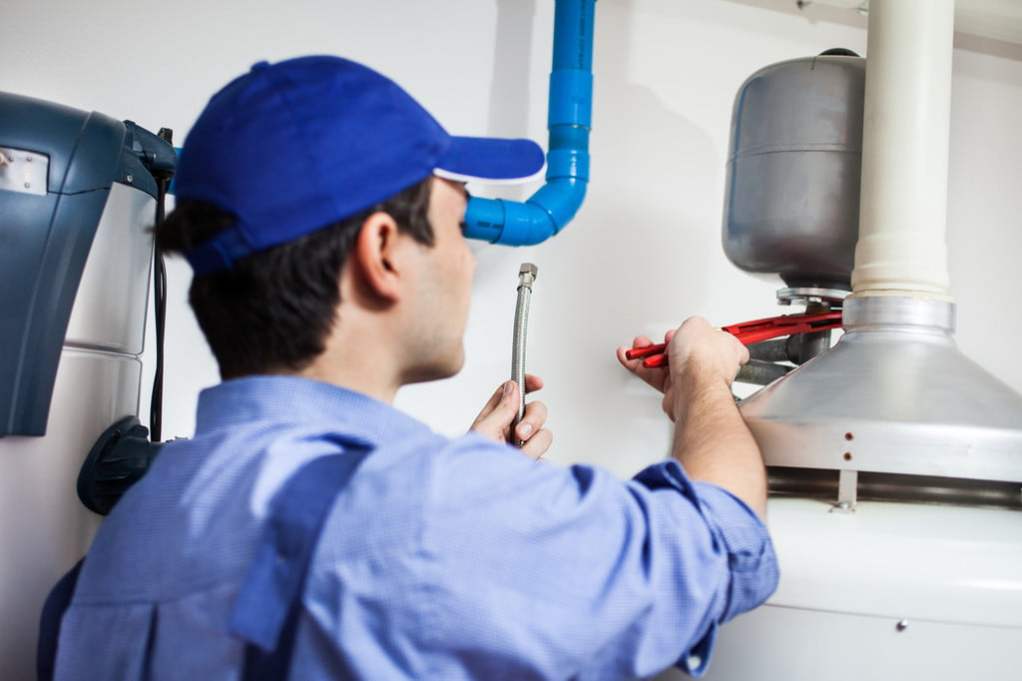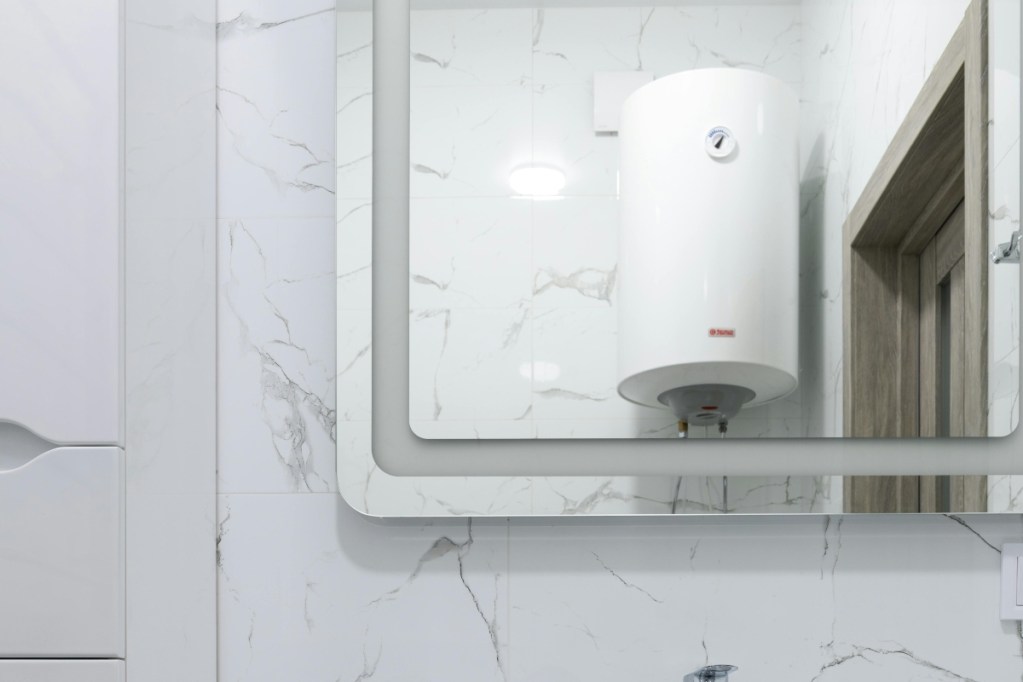When it comes to choosing between a tankless water heater vs. tank, understanding the differences can help you make an informed decision for your home. Each type offers unique benefits and challenges, impacting everything from installation costs to energy efficiency. Let’s dive into what each water heater type entails and explore which one might be the best fit for your household.
What’s a tank water heater?

A tank water heater, often referred to as a traditional water heater, stores a fixed amount of hot water in a large insulated tank. This tank is constantly heated to maintain the water at a specific temperature, ready to use whenever needed.
Tank water heaters come in various sizes, generally ranging from 20 to 80 gallons, and the size needed depends on the household’s hot water demands. When hot water draws from the top of the tank, cold water flows in from the bottom, gradually reheating to maintain a consistent temperature.
What’s a tankless water heater?

A tankless water heater, sometimes called an on-demand water heater, heats water only when needed, providing hot water without storing it. Instead of keeping a reservoir of hot water, it heats water as it flows through the unit using electric or gas burners. This on-demand functionality makes tankless water heaters a great addition to energy-efficient households because energy is only used when hot water is needed.
Tankless water heater vs. tank: Factors to consider

Choosing between a tankless water heater and a tank water heater depends on several factors. Let’s discuss each aspect to help you evaluate which type of water heater is the best investment for your home.
Installation cost
When it comes to upfront costs, tank water heaters are generally less expensive to purchase and install compared to tankless systems. Tank water heaters typically cost between $300 and $1,500, while a tankless water heater’s cost can range from $800 to $3,000, depending on the unit’s power source and size.
Tankless water heaters may require upgrades to the home’s electrical or gas systems, increasing installation costs, especially in older homes. However, if you have existing plumbing that accommodates a tankless system, the installation cost might be more manageable.
Operating costs
Operating costs vary significantly between the two types of water heaters. Tank water heaters continuously use energy to maintain the water’s temperature, leading to higher monthly bills. In contrast, tankless water heaters only use energy when hot water is needed, resulting in lower operating costs over time.
On average, tankless water heaters can reduce energy bills by up to 30%, but it’s essential to consider your household’s hot water usage and whether the savings offset the higher initial investment of a tankless system.
Maintenance requirements
Both tank and tankless water heaters require periodic maintenance, though the type and frequency differ. Tank water heaters need to be flushed annually to prevent sediment buildup that can reduce efficiency and shorten the unit’s lifespan, which typically ranges from 8 to 12 years.
In contrast, tankless water heaters have a longer lifespan — up to 20 years — but they also require periodic descaling, especially in areas with hard water. Descaling prevents mineral buildup in the heating elements, ensuring that the unit continues to operate efficiently.
Energy savings
When considering energy savings, tankless water heaters generally outperform traditional tank heaters. Since they only heat water on demand, tankless models use less energy overall. Tank water heaters, on the other hand, continually cycle on and off to maintain a reservoir of hot water, leading to more energy consumption.
While tank water heaters can benefit from high-efficiency models, they still don’t match the energy savings provided by tankless systems in most scenarios.
Efficiency
Efficiency is a strong selling point for tankless water heaters, as they are designed to provide endless hot water without the limitations of a tank. This can be a significant advantage for large families or households with high water demand.
Tank water heaters, however, can sometimes fall short during peak usage times. Once the hot water tank is depleted, there can be a waiting period while the tank reheats, which can be inconvenient. Tankless systems provide continuous hot water, but they may struggle to supply multiple hot water sources at once in homes with high simultaneous water demands.
Pros and cons of tankless water heater vs. tank

To simplify the decision-making process, here’s a quick overview of the pros and cons for each type of water heater:
Tank pros
- Lower initial cost
- Simpler installation
- Ideal for average hot water usage
Tank cons
- Higher energy bills
- Bulkier, requiring more space
- Shorter lifespan
Tankless pros
- Provides endless hot water
- Highly energy efficient
- Compact design saves space
- Longer lifespan
Tankless cons
- Higher initial cost
- May require home upgrades
- Not ideal for simultaneous usage on multiple fixtures
Which is right for your home?

When replacing your water heater, deciding between a tankless vs. tank comes down to your specific needs, budget, and household water usage.
- If you prioritize lower initial costs, a tank water heater may be a better fit, especially for households with moderate hot water needs.
- If you want energy savings and endless hot water for larger households, a tankless water heater might be the better choice, though it may come with a higher upfront cost.
- Consider the space available in your home and whether you have the capacity for a larger tank or if a wall-mounted tankless unit would fit better in your utility area.
- Consider your climate. In colder regions, a tank heater may be more reliable during peak usage times, whereas tankless systems work efficiently year-round in warmer climates.
Choosing between a tankless water heater and a traditional tank water heater involves balancing your initial investment, ongoing costs, and personal preferences. While tank water heaters offer a budget-friendly option with reliable performance, tankless water heaters shine in energy efficiency, space-saving design, and endless hot water. By weighing the pros and cons and considering your household’s unique needs, you can select the best water heater for your home that provides comfort, efficiency, and peace of mind.




